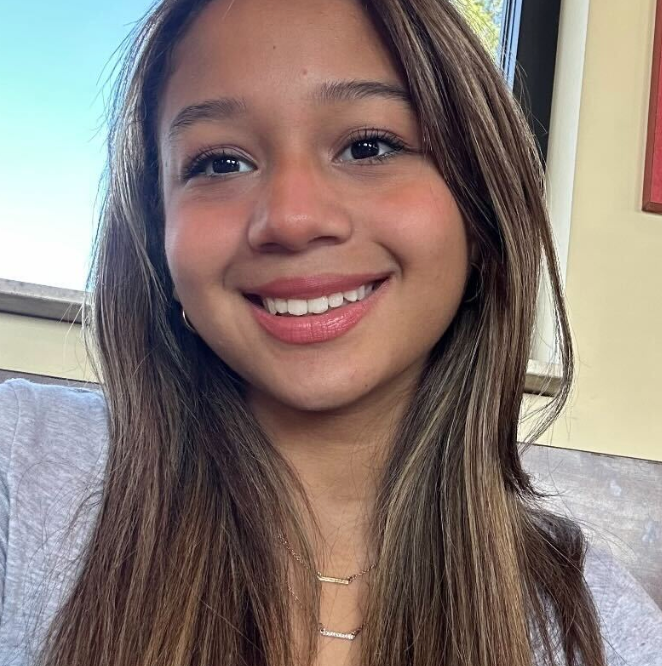'New Voices' act helps student journalists like me. Student press freedom must be upheld.
The first time I experienced the joy of student journalism was when I published an article on book bans last year for The New Edu, an independent, student-led publication from the Kentucky Student Voice Team. It was an effort to raise awareness of book bans and their impact on underserved communities. Soon after, when my own school attempted to ban books, my experience from writing the article allowed me to offer a quote on the topic for a beautifully crafted piece by another student journalist.
The privilege of writing for the Kentucky Student Voice Team’s Press Corps has been unlike any other. However, for years, school censorship has targeted student storytelling. Student press freedom allows for the enrichment of student journalism programs in schools and beyond, thereby benefiting our society as a whole.
Student journalism needs support from Kentucky lawmakers
Being a part of a methodical and empowering student publication has been pivotal to my journey as a writer. It has taught me that student press freedom in our state can only be possible if support systems within student journalism are set in place to uplift us and enable us to grow.
Advocating for legislative action that protects the rights of young Kentucky journalists and prevents them from unjust censorship is a way to make sure student press freedom is supported. In an op-ed last year, student journalists, including a New Voices advocate, wrote about The New Voices Act, a bill to protect the freedom of school-based reporting in Kentucky. New Voices has been introduced every year in Kentucky since 2020, but was first introduced in 1990, according to the Student Press Law Center.
Student journalists are the future: Student potential for being leaders in Kentucky is real
There are a handful of reasons why schools may attempt to censor student press. Poor research, inappropriate content and affiliating the school with particular political views are a few examples of why schools may censor student press, according to the Freedom Forum. Nevertheless, enforcement of limitations is prone to subjectivity.
"Student press freedom is in the interest of not only students but also just community members in general,” said Isabella Edghill, a webmaster for DuPont Manual’s Redeye and a fellow writer for The New Edu. She explained that “students have a great and interesting angle and take on the world.” However, when censorship is an issue, “we're losing crucial takes on what's going on around us.”
Student publications have a "unique vantage point and perspective," according to the Student Press Freedom Day website. This raises a crucial question: How can we work to prevent student press censorship?
'New Voices' legislation will help Kentucky student journalists
Student press freedom initiatives, most notably New Voices legislation, are promising ways to ensure student journalists are supported. New Voices is a student-powered movement, aiming “to protect student press freedom with state laws.” Enactment of these laws help protect students from the negative consequences of the 1988 Hazelwood v. Kuhlmeier Supreme Court decision, commonly used to censor their voices.
Student journalists need support: The First Amendment must extend to student journalists seeking to report the truth
When it comes to frameworks within student press to ensure ethical stories, student media would be susceptible to censorship only if certain guidelines are violated, including being “libelous or slanderous,” confirming that restrictions would be unambiguous and reasonable. The bill would not allow student journalists to publish without feedback and that it only covers school-sponsored media.
Though efforts to support New Voice legislation, Senate Bill 132, in our state have been extensive, the last action on the bill was last year. Even so, conversations in student media about what stories should be reported and how they should be presented can be amplified through advocating for press freedom. Student press freedom fosters more open and honest communication about how to best support student journalism. It provides students with the agency that can benefit their work and, in turn, our communities.
As a young journalist, my biggest joy is getting to share the voices of the least heard and inspire change through my words. Legislative action that supports student press freedom can give student journalists the protection needed for them to continue doing what they do best—helping enhance our world through the power of storytelling.

Luisa Sanchez is a sophomore at Boyle County High School. Luisa is a writer with Kentucky Student Voice Team's Press Corps, in addition to being a SANE coordinator for the Kentucky Student Voice Team. She is part of Student Press Law Center's New Voices Student Leaders Institute.
This article originally appeared on Louisville Courier Journal: Student Press Freedom Day: SB 132 protects student voices in the press

